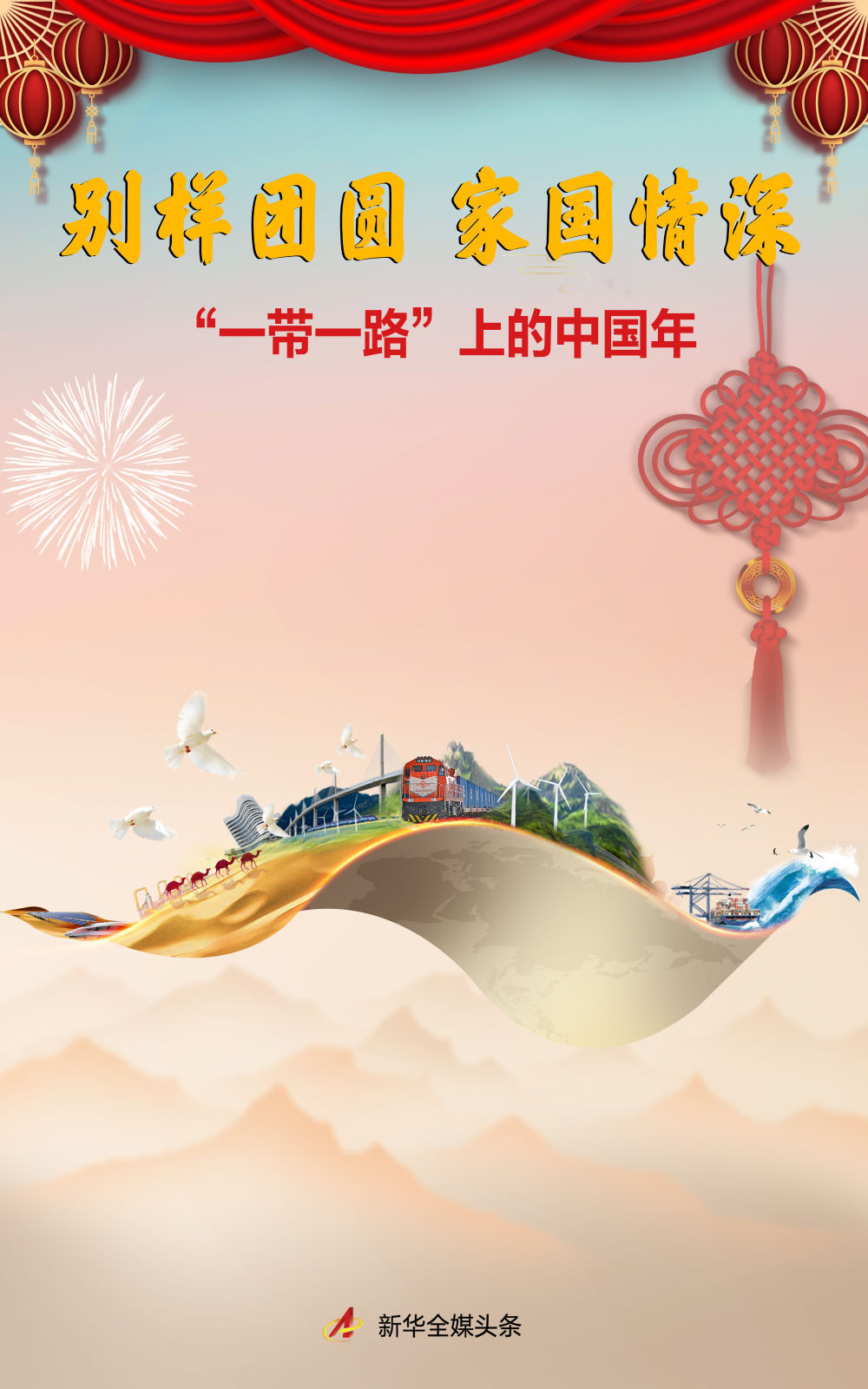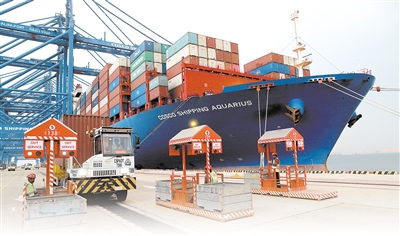【Reason And China】Adhere To The Dialectical Unity Of Strategic Determination And Bottom-line Thinking In Economic And Trade Game
【Reason And China】Adhere To The Dialectical Unity Of Strategic Determination And Bottom-line Thinking In Economic And Trade Game
[Responsible for China] Adhere to the dialectical unity of strategic determination and bottom-line thinking in economic and trade game-
On April 11, 2025, President Xi Jinping mentioned "consistency" twice when meeting with Spanish Prime Minister Sanchez who visited China. When talking about China's development, he emphasized, "For more than 70 years, China's development has always relied on self-reliance and hard work, never relying on anyone's gifts, and not afraid of any unreasonable suppression. No matter how the external environment changes, China will strengthen its confidence, maintain its determination, and concentrate on doing its own business well." Faced with the complex international environment, China has always adhered to the dialectical unity of strategic determination and bottom-line thinking, anchoring the development direction with a global perspective, and defending core interests with a clear red line, demonstrating the political wisdom and institutional advantages in the game of big powers. Faced with the impact of unilateralism and the "re-industrialization" strategy, China has transformed external pressure into strategic opportunities to deepen reforms and reshape the global governance system through systematic and multi-dimensional response strategies.
First, adhere to reciprocity and precise measures, and defend national sovereignty and development rights with bottom-line thinking. Faced with the bullying behavior of trade protectionism and tariff barriers, China has always adhered to the principle of "not causing trouble or not being afraid of trouble", drawn clear on the bottom line of sovereignty, development rights and rules, and demonstrated the struggle strategy of "reasonable, beneficial and stable". In the field of science and technology, in the face of Western countries curbing the development of China's high-tech industry, China responded with the "Several Policies to Promote the High-Quality Development of the Integrated Circuit Industry and Software Industry in the New Era" and set the chip self-sufficiency target to 70%, so as to break through the blockade of key core technologies through the national system. This bottom-line thinking is not passive defense or passive preservation, but rather a comprehensive protection network through a systematic layout with a strategic initiative. For example, the "Measures for Blocking Improper External Application of Foreign Laws and Measures" was issued to resist "long-arm jurisdiction" and expand the "de-dollarization" settlement network through the RMB Cross-border Payment System (CIPS). Its transaction volume increased by 43% year-on-year in 2024. This response strategy that combines both legal principles and balances offense and defense is not only a practice of the dialectics of "seeking cooperation through struggle", but also a persistence in the bottom line of "core interests cannot be violated".
The second is to deepen reform and opening up and expand domestic demand, and consolidate the foundation of development with strategic determination. Faced with the world's major changes unseen in a century, China avoids short-term confrontational thinking, maintains the pace of reform and opening up, and focuses on cultivating endogenous growth momentum. China has always regarded development as its top priority, and has continuously optimized the economic structure through supply-side structural reforms and promoted the transformation of new and old kinetic energy. This strategic determination comes from following the laws of historical materialism development, which is based on the foundation of material production, and also releases the potential of productivity through adjustments to production relations. In response to the profound evolution of the external environment, China has not fallen into passive confrontation, but has always upheld the spirit of historical initiative and promoted high-level institutional opening with greater efforts. On the one hand, diversified layout is supported with the market in depth. China adjusted its export structure and expanded domestic demand. Data from the National Bureau of Statistics showed that in 2024, China's total retail sales of consumer goods increased by 3.5% year-on-year, national online retail sales increased by 7.2% year-on-year, and the total passenger transportation volume increased by 8.5% year-on-year. With the world's unique super-large-scale market, it promotes the formation of a buffer mechanism of "external demand shrinking and domestic demand filling" . On the other hand, technological progress drives the upgrade of the value chain. Chinese companies have achieved independent innovation in the entire chain in the field of 5G technology. With the proportion of 14% of the 5G standard essential patents, Huawei has dominated the formulation of global 5G technology standards, breaking the long-term monopoly of enterprises in Western countries and reshaping the global value chain pattern of communication equipment. The 7nm etching machine independently developed by China Micro Company has achieved import substitution under the technology blockade, and overseas orders have surged, entering the supply chain of international manufacturers such as TSMC and Samsung. In addition, the C919 large aircraft broke the international monopoly, the domestic production rate of domestic industrial robots exceeded 50%, and the fourth-generation nuclear power technology and ultra-high voltage transmission and distribution systems ranked among the forefront of the world. China "exchanges space for time and breaks the blockade with innovation", and has stronger buffering capabilities in the face of tariff shocks. This strategic determination to "concentrate on doing your own business well" is not only due to the institutional advantages accumulated over the past 40 years of reform and opening up, but also reflects a profound grasp of the historical law of "the long-term improvement of China's economic development will not change nor will it change."
The third is to adhere to multilateralism and rule innovation, and reconstruct the cooperation framework from a global perspective. China has always held high the banner of multilateralism, connected 135 countries through the "Belt and Road" initiative, and promoted the decentralization of global value chains. The 2025 white paper "China's Position on Several Issues Concerning China-US Economic and Trade Relations" clearly pointed out that the trade volume between China and the United States jumped from US$2.5 billion in 1979 to US$688.3 billion in 2024, proving that the economic complementarity of the two countries is irreplaceable. The essence of China-US economic and trade relations is mutual benefit and win-win results, and any unilateral act will eventually backfire itself. China has reshaped its rules in the fields of digital trade, green standards, and provided new settlement plans for developing countries through the Asian Infrastructure Investment Bank and the BRICS New Development Bank, breaking the "decoupling and chain breaking" plan. This wisdom of "making consensus through game" not only shatters the Western narrative trap of zero-sum game, but also provides stability and endogenous driving force for global governance with the concept of a community with a shared future for mankind, innovatively activates external challenges, and thus shapes a strategic window for the reconstruction of the international order.
Fourth, expand the international united front to solve the geo-economic dilemma by balancing openness. China has always upheld the strategic determination to transcend "zero-sum game". While implementing precise countermeasures against unilateral protectionism, it abides by the spirit of the global governance contract and builds a new paradigm of major power relations of "mutual respect and win-win cooperation". Through the "Belt and Road" customs information platform, realize the interconnection of China-Europe and Africa's tripartite origin certification, improve the efficiency of cross-border supply chains; provide tariff compensation mechanisms to more than 30 least developed countries through the South-South Cooperation Assistance Fund; actively promote joining high-standard trade agreements such as the Comprehensive and Progressive Trans-Pacific Partnership Agreement (CPTPP) and the Digital Economy Partnership Agreement (DEPA), comprehensively and deeply participate in WTO reform, promote the expansion of the BRICS, and accelerate the upgrading of the Regional Comprehensive Economic Partnership Agreement (RCEP). China has established a series of multilateral framework mechanisms for dialogue and cooperation among developing countries, and strives to promote equal dialogue among countries through mechanisms, which not only breaks through the traditional geo-competition paradigm, but also uses rules to reconstruct and enhances the collective bargaining power of developing countries, and forms a systematic check and balance against unilateralism. This strategy of daring to fight and good at cooperation profoundly reveals the historical inevitability of unilateralism's self-negation, and fulfills the solemn promise of "creating new opportunities for world development" in building a new development pattern.
The strategic determination and bottom-line thinking demonstrated by China in the economic and trade game are the result of the combined effect of historical experience and realistic considerations. Through the systematic response of countermeasures, reforms, opening up and cooperation, China transforms external challenges into the driving force for deepening reform, explores the symbiotic path of its own development and the optimization of the international order, and strives to become the stable anchor of the global governance system, "stabilizes the uncertain world with China's certainty." This not only embodies the resolute defense of core interests, but also embodies the civilizational background of "harmony and symbiosis", demonstrating the confidence of a great country in the symphony of traditional governance wisdom and modern governance capabilities.
Faced with the two overall situations, China has always maintained strategic clarity and historical patience. This response paradigm of building a defense system with strategic determination and anchoring action coordinates with bottom-line thinking is not only the foundation for defending national sovereignty, security and development interests, but also the initiative to promote the reconstruction of international economic and trade rules and reshape the global governance system with the concept of a community with a shared future for mankind. When unipolar hegemony encounters the wave of civilization awakening, China upholds the strategic philosophy of uniting strategic determination and bottom-line thinking. In the historical river densely covered with Thucydides, it deconstructs the logic of the change of traditional hegemony, providing a firm support for developing countries to break through systemic oppression, reflecting the superiority of the socialist system with Chinese characteristics under the leadership of the Communist Party of China, and demonstrating China's historical responsibility and national wisdom as a responsible major country.
Strategic determination is the ballast that resists external shocks and anchors the development direction. Faced with tariff pressure, technological blockade and rule encirclement, China has always taken the overall perspective of "not afraid of clouds and obscuring the view", insisting that development is the top priority, and focusing on the main line of deepening reform and expanding opening up will not waver. The confidence of this strategic determination comes from the three "certainty": First, the modern governance system based on the socialist system with Chinese characteristics, not only breaks through the bottleneck of conventional governance through the cross-level resource scheduling mechanism, but also builds a full-chain prevention and control network to deal with systemic risks, providing China with a system container that is both stable and flexible in resisting external shocks in a century-long change. Second, the depth of the super-large-scale domestic demand market with the aggregation of people's hearts and the resonance of social development at the same frequency as the core. The potential not only provides trial and error space and buffer zone for industrial structure adjustment and upgrading, but also builds a strong strategic defense line for responding to external uncertainties; thirdly, multilateral diplomacy with the "Belt and Road" initiative as a strategic fulcrum not only hedges geopolitical risks, but also activates the endogenous driving force of the regional economy, which has spawned emerging growth poles such as Southeast Asia's new energy vehicle manufacturing clusters and Central Asia's cross-border agricultural cooperation belt, contributing a more resilient parallel system to the world and reshaping the underlying logic of global trade. This determination of "he allows him to be strong, the breeze blows through the hills; he is horizontal, and the bright moon shines on the river" is not only a practical interpretation of the decisive meaning of the "two established" and also an oriental wisdom to crack the "Thucydides Trap" with Chinese modernization. "The world is in chaos today, and certainty is increasingly becoming a scarce resource for the world", while China "proves the path of peaceful development is a bright road for steady and long-term development."
Bottom line thinking is the key defense line for defending core interests and controlling the initiative in game. China has always drawn a red line with the principle of "not causing trouble or not being afraid of trouble" and firmly opposes the politicization and pan-securityization of economic and trade issues. "Not causing trouble" is reflected in maintaining the stability of the development environment, and the boundaries of interests are drawn through a legal and transparent rule system. China adheres to the principle of WTO multilateral framework in the field of economy and trade, opposes the implementation of technological blockade and industrial decoupling in the name of national security. It is essentially defending the objective law of globalized division of production and organically unify its own development interests with the global supply of public products. "Not afraid of trouble" demonstrates the determination to "any attempt to stop China's development is doomed to fail". Through strategic responses such as legal countermeasures, industrial hedging, and diplomatic coordination, external pressure will be transformed into an endogenous driving force for reform and innovation. The deep logic of opposing the politicization and generalization of economic and trade issues lies in solving the hegemonic thinking of "rule-making power is strategic initiative". By incorporating industrial chain and supply chain security into the national security legislative system, China has established an independent and controllable standard system in the fields of cross-border data flow and critical infrastructure protection, which is essentially a technical curb with institutional power. The innovation of this bottom-line thinking lies in not only recognizing the historical inertia of the evolution of international rules, maintaining an open attitude of globalization, but also focusing on creating a discourse fulcrum of "Chinese solutions" in emerging fields such as artificial intelligence governance and digital economy rules.
We must always adhere to the centralized and unified leadership of the Party Central Committee, with a high degree of historical awareness and political clarity, and with the determination to "fly the chaos and clouds are still calm", firmly grasp the irreversible historical trend of economic globalization, maintain strategic patience in opening up, adhere to the moral highland of multilateralism, improve the resilience and security level of the industrial chain and supply chain, and ensure that the long-term positive fundamentals of economic development are not disturbed; with the courage of "dare to teach the sun and the moon to change the new sky", draw a red line for sovereignty, security, and development interests, and effectively counter any unilateral bullying behavior that harms China's core interests, actively participate in the reform of the global governance system, build the Great Wall of Steel in the principle dimension, and innovate game tools in the strategic dimension.
[Author profile: Cheng Manqing, lecturer at the Party School of the Xiamen Municipal Committee of the Communist Party of China (Xiamen Socialism College, Xiamen Administrative College). 】





